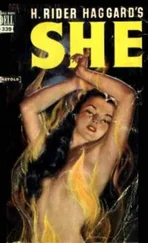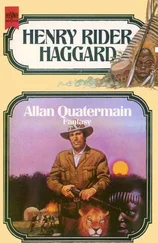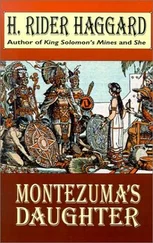How different is the scene that I have now to tell from that which has just been told! Gone are the quiet college rooms, gone the wind-swayed English elms, the cawing rooks, and the familiar volumes on the shelves, and in their place there rises a vision of the great calm ocean gleaming in shaded silver lights beneath the beams of the full African moon. A gentle breeze fills the huge sail of our dhow, and draws us through the water that ripples musically against her sides. Most of the men are sleeping forward, for it is near midnight, but a stout swarthy Arab, Mahomed by name, stands at the tiller, lazily steering by the stars. Three miles or more to our starboard is a low dim line. It is the Eastern shore of Central Africa. We are running to the southward, before the North East Monsoon, between the mainland and the reef that for hundreds of miles fringes this perilous coast. The night is quiet, so quiet that a whisper can be heard fore and aft the dhow; so quiet that a faint booming sound rolls across the water to us from the distant land.
The Arab at the tiller holds up his hand, and says one word:—“ Simba (lion)!”
We all sit up and listen. Then it comes again, a slow, majestic sound, that thrills us to the marrow.
“To-morrow by ten o’clock,” I say, “we ought, if the Captain is not out in his reckoning, which I think very probable, to make this mysterious rock with a man’s head, and begin our shooting.”
“And begin our search for the ruined city and the Fire of Life,” corrected Leo, taking his pipe from his mouth, and laughing a little.
“Nonsense!” I answered. “You were airing your Arabic with that man at the tiller this afternoon. What did he tell you? He has been trading (slave-trading, probably) up and down these latitudes for half of his iniquitous life, and once landed on this very ‘man’ rock. Did he ever hear anything of the ruined city or the caves?”
“No,” answered Leo. “He says that the country is all swamp behind, and full of snakes, especially pythons, and game, and that no man lives there. But then there is a belt of swamp all along the East African coast, so that does not go for much.”
“Yes,” I said, “it does—it goes for malaria. You see what sort of an opinion these gentry have of the country. Not one of them will go with us. They think that we are mad, and upon my word I believe that they are right. If ever we see old England again I shall be astonished. However, it does not greatly matter to me at my age, but I am anxious for you, Leo, and for Job. It’s a Tom Fool’s business, my boy.”
“All right, Uncle Horace. So far as I am concerned, I am willing to take my chance. Look! What is that cloud?” and he pointed to a dark blotch upon the starry sky, some miles astern of us.
“Go and ask the man at the tiller,” I said.
He rose, stretched his arms, and went. Presently he returned.
“He says it is a squall, but it will pass far on one side of us.”
Just then Job came up, looking very stout and English in his shooting-suit of brown flannel, and with a sort of perplexed appearance upon his honest round face that had been very common with him since he got into these strange waters.
“Please, sir,” he said, touching his sun hat, which was stuck on to the back of his head in a somewhat ludicrous fashion, “as we have got all those guns and things in the whale-boat astern, to say nothing of the provisions in the lockers, I think it would be best if I got down and slept in her. I don’t like the looks” (here he dropped his voice to a portentous whisper) “of these black gentry; they have such a wonderful thievish way about them. Supposing now that some of them were to slip into the boat at night and cut the cable, and make off with her? That would be a pretty go, that would.”
The whale-boat, I may explain, was one specially built for us at Dundee, in Scotland. We had brought it with us, as we knew that this coast was a network of creeks, and that we might require something to navigate them with. She was a beautiful boat, thirty-feet in length, with a centre-board for sailing, copper-bottomed to keep the worm out of her, and full of water-tight compartments. The Captain of the dhow had told us that when we reached the rock, which he knew, and which appeared to be identical with the one described upon the sherd and by Leo’s father, he would probably not be able to run up to it on account of the shallows and breakers. Therefore we had employed three hours that very morning, whilst we were totally becalmed, the wind having dropped at sunrise, in transferring most of our goods and chattels to the whale-boat, and placing the guns, ammunition, and preserved provisions in the water-tight lockers specially prepared for them, so that when we did sight the fabled rock we should have nothing to do but step into the boat, and run her ashore. Another reason that induced us to take this precautionary step was that Arab captains are apt to run past the point that they are making, either from carelessness or owing to a mistake in its identity. Now, as sailors know, it is quite impossible for a dhow which is only rigged to run before the monsoon to beat back against it. Therefore we got our boat ready to row for the rock at any moment.
“Well, Job,” I said, “perhaps it would be as well. There are lots of blankets there, only be careful to keep out of the moon, or it may turn your head or blind you.”
“Lord, sir! I don’t think it would much matter if it did; it is that turned already with the sight of these blackamoors and their filthy, thieving ways. They are only fit for muck, they are; and they smell bad enough for it already.”
Job, it will be perceived, was no admirer of the manners and customs of our dark-skinned brothers.
Accordingly we hauled up the boat by the tow-rope till it was right under the stern of the dhow, and Job bundled into her with all the grace of a falling sack of potatoes. Then we returned and sat down on the deck again, and smoked and talked in little gusts and jerks. The night was so lovely, and our brains were so full of suppressed excitement of one sort and another, that we did not feel inclined to turn in. For nearly an hour we sat thus, and then, I think, we both dozed off. At least I have a faint recollection of Leo sleepily explaining that the head was not a bad place to hit a buffalo, if you could catch him exactly between the horns, or send your bullet down his throat, or some nonsense of the sort.
Then I remember no more; till suddenly—a frightful roar of wind, a shriek of terror from the awakening crew, and a whip-like sting of water in our faces. Some of the men ran to let go the haulyards and lower the sail, but the parrel jammed and the yard would not come down. I sprang to my feet and hung on to a rope. The sky aft was dark as pitch, but the moon still shone brightly ahead of us and lit up the blackness. Beneath its sheen a huge white-topped breaker, twenty feet high or more, was rushing on to us. It was on the break—the moon shone on its crest and tipped its foam with light. On it rushed beneath the inky sky, driven by the awful squall behind it. Suddenly, in the twinkling of an eye, I saw the black shape of the whale-boat cast high into the air on the crest of the breaking wave. Then—a shock of water, a wild rush of boiling foam, and I was clinging for my life to the shroud, ay, swept straight out from it like a flag in a gale.
We were pooped.
The wave passed. It seemed to me that I was under water for minutes—really it was seconds. I looked forward. The blast had torn out the great sail, and high in the air it was fluttering away to leeward like a huge wounded bird. Then for a moment there was comparative calm, and in it I heard Job’s voice yelling wildly, “Come here to the boat.”
Читать дальше












